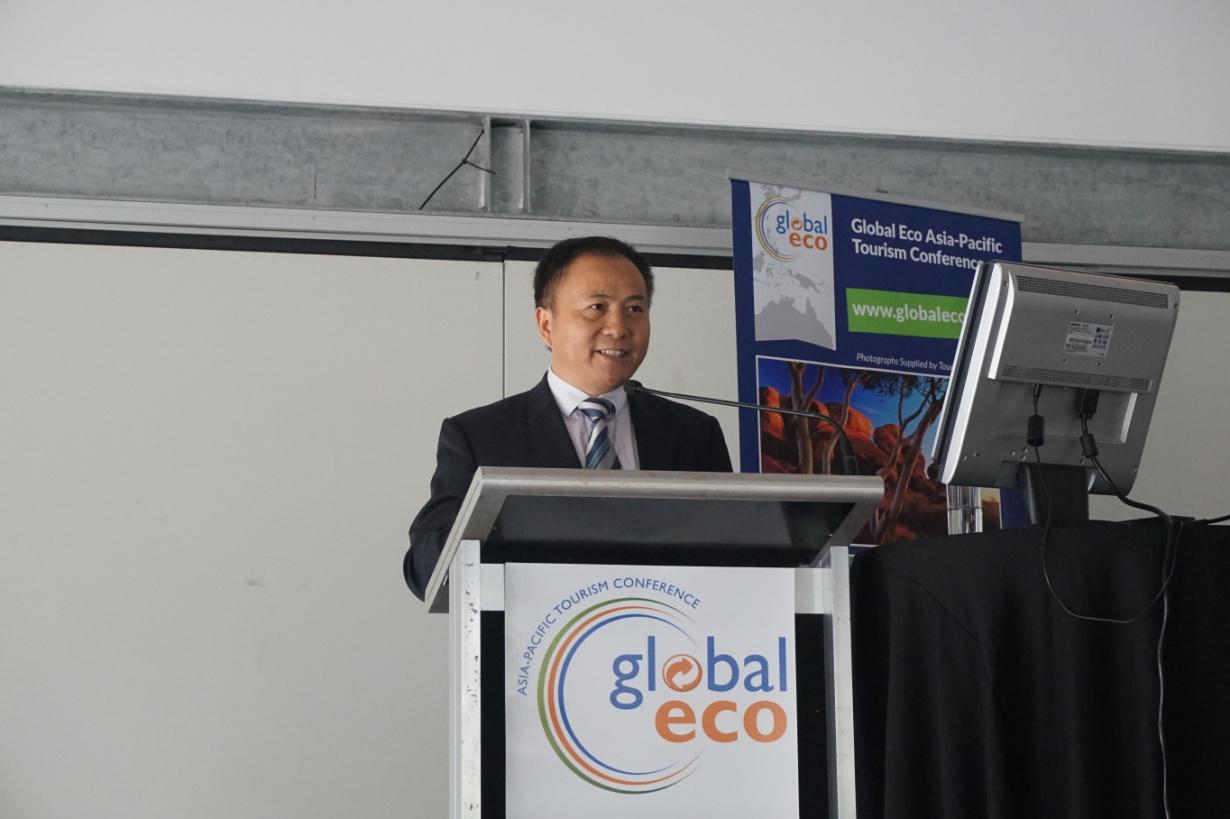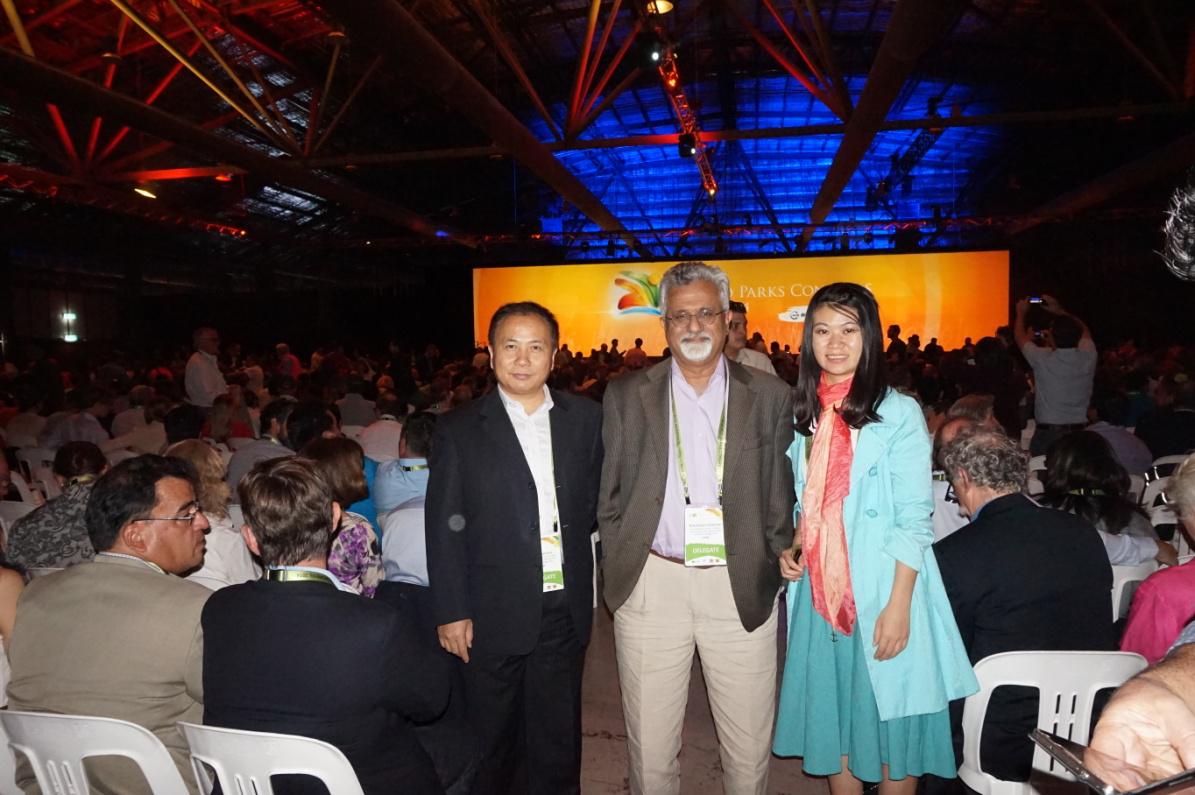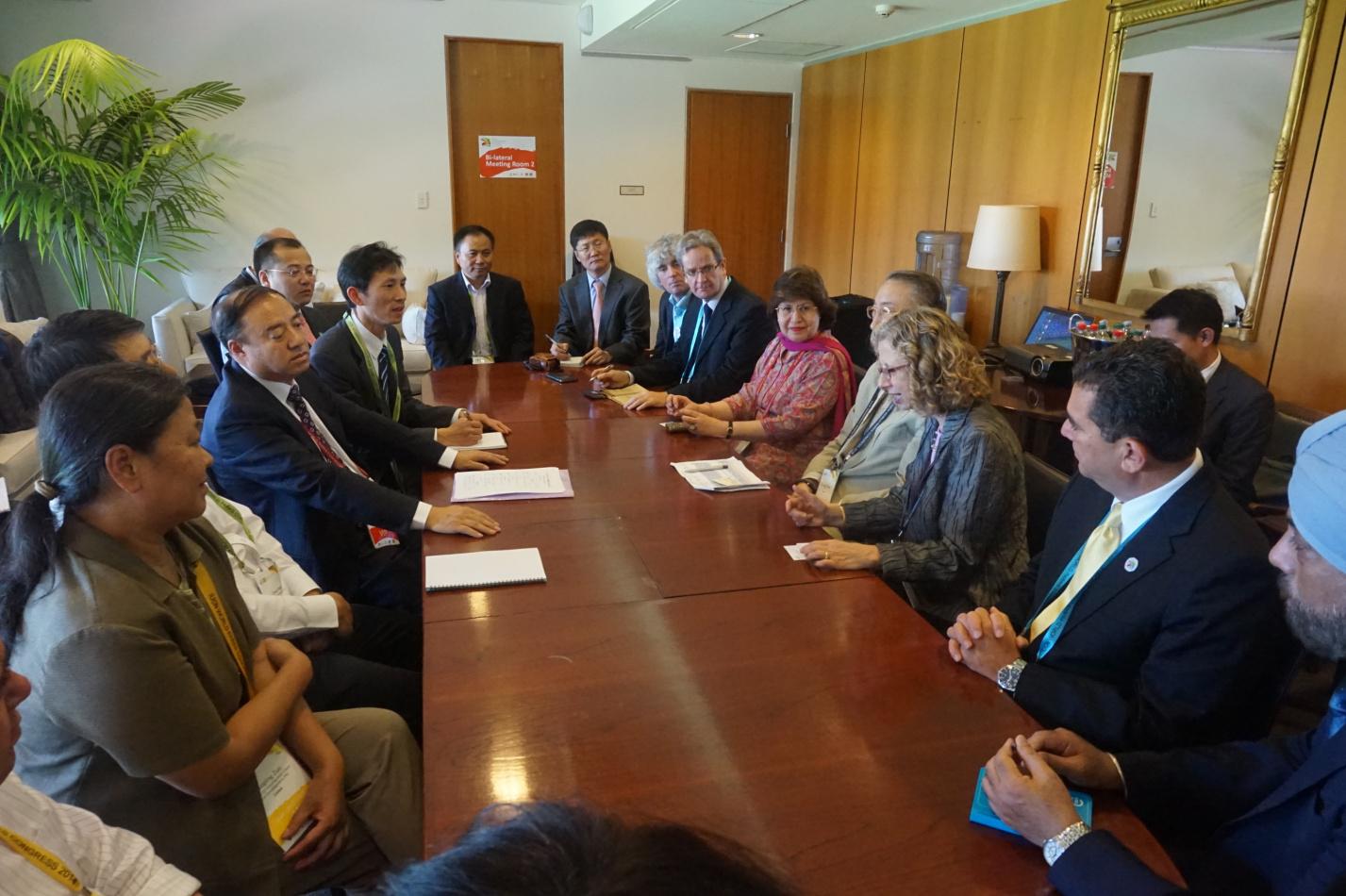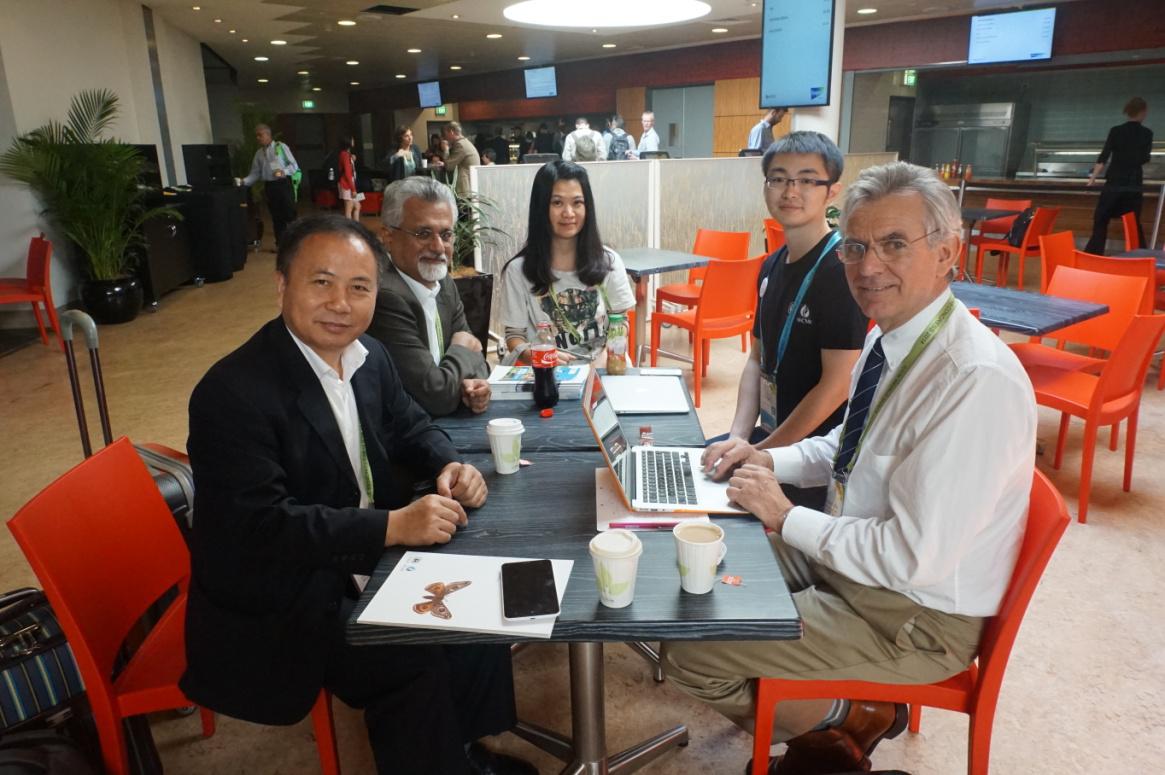
HIST DELEGATION PARTICIPATES IN THE 6th WORLD PARKS CONGRESS
World Parks Congresses (WPC) are decennial events hosted under the auspices of the World Commission on Protected Areas (WCPA) of the International Union of Conservation of Nature and Natural Resources (IUCN, also referred to as The World Conservation Union). The first and second WPCs were convened in the United States of America (USA) in Seattle and the Yellowstone National Park, in 1962 and 1972, respectively. The adoption of the Convention Concerning the Protection of the World Cultural and Natural Heritage, often abbreviated as the World Heritage Convention by the UNESCO General Conference in 1972 was, in part, to commemorate the 100 year anniversary of the world’s first national park, namely the Yellowstone National Park, where the 2nd World Parks Congress was convened in the same year. Subsequent WPCs have been convened in Bali, Indonesia (1982), Caracas, Venezuela (1992), and Durban, South Africa (2003), respectively.
The 6th WPC was hosted by Australia in Sydney from 11 to 19 November 2014. The HIST Delegation, comprising Mr. Hong Tianhua, Executive Deputy Director of HIST, Prof. Natarajan Ishwaran, State Recruited Expert serving HIST in the field of international cooperation on space technology applications for natural and cultural heritage and Ms. Wang Meng, Program Assistant at the HIST Secretariat, attended the 6th WPC. More than 5000 participants representing more than 50 countries attended WPC. Participants at the event represented all levels of Government and non-Government organizations from China and elsewhere; some representatives of UNESCO designated places World Heritage sites such as Jiuzhaigou World Heritage site of Sichuan and Changbaishan Biosphere reserve of Jilin Province were among the Chinese representatives attending WPC events.
The HIST Delegation contributed towards many events organized during the 6th WPC. The most noteworthy ones are: (i) Workshop to discuss the outcome of the Republic of Korea-Spain collaborative project on climate change adaptation in coastal and small island biosphere reserves organized by the UNESCO MAB Secretariat and the Jeju Island Biosphere Reserve of the Republic of Korea (11 November); (ii) Global Eco 2014 – an international one-day seminar jointly organized by Ecotourism Society of Australia in cooperation with HIST, University of Queensland, UN World Tourism Organization (UNWTO), Parks, Australia and a selected number of private tourism operators and organizations in Australia (12 November); (iii) An IUCN/UNESCO World Heritage Centre session on the World Heritage Cross Cutting theme of the 6th WPC and associated events and activities during the Congress (14 November; 1300-1500 hours); (iv) A United Nations University (UNU) Institute of Advanced Studies and Japan International Cooperation Agency (JICA) panel on Satoyama and similar concepts dealing with mixed protection/production land and seascapes such as UNESCO Biosphere Reserves (14 November; 1730-1900 hours); and (v) A special evening session and panel discussion on internationally designated protected areas organized by the Administration of the Jeju Island Autonomous Province of the Republic of Korea (14 November; 1930-2100 hrs).
The HIST Delegation also attended special ad-hoc meetings that were useful for the future of HIST activities. Examples include the meeting of a majority of Chinese organizations represented at the WPC and the Chairman of IUCN, Mr. Zhang Xinsheng; and discussions with Dr. Jonathan Hutton, Director of the UNEP-WCMC (United Nations Environment Program-World Conservation Monitoring Centre), located in Cambridge, UK on possibilities for sharing data on protected areas. UNEP-WCMC has the largest data set on protected areas of the world including for more than 200 World Natural and Mixed Heritage sites; it is also responsible for research, data gathering and analyses that contribute to the regular updating of the UN List of Protected Areas.
HIST Delegation’s participation in these and other informal events, particularly several ad-hoc presentations and discussions organized in the exhibition hall of the WPC resulted in raising awareness of many international and national organizations throughout the world of the work of HIST and possibilities of HIST becoming their partner in initiatives of mutual interest. The information brochure and the 2013 newsletter of HIST were keenly sought after by WPC participants. The Delegation also distributed to selected number (100 in all) of participants attending the WPC the outcome report of the Huangshan Dialogue on UNESCO sites, space technologies and sustainable development held in Huangshan World Heritage site and global geopark in Anhui Province of China from 26 to 30 May 2014. The UNESCO representatives attending the WPC, in particular Dr. Patrick Mc Keever, Chief of the Earth Sciences Section of the Division of Ecological and Earth Sciences of UNESCO and the UNESCO representative in the Governing Board of HIST was pleased to see that the outcome of the Huangshan Dialogue being made available to participants at the WPC.
In the special session jointly organized by IUCN and the UNESCO World Heritage Centre as well as in the session on internationally designated protected areas organized by the Administration of the Jeju Island Autonomous Region of the Republic of Korea the need to give greater emphasis to internationally designated places such as World Heritage sites, biosphere reserves, global geoparks and Ramsar Convention sites was stressed. Following the Huangshan Dialogue, which is the first-ever event to focus on all UNESCO designated places, IUCN and the Jeju Island authorities have launched a project to study ways and means of building synergies in the management of these various internationally designated places. Jeju Island of the Republic of Korea is the only place in the world that is home to a UNESCO World Heritage site and Biosphere Reserve as well as a Global Geopark and a Ramsar wetland site.
The outcome of the 6th WPC, under the caption “Sydney Promise” will provide important guidance to work of all protected area specialists, managers and practitioners during the coming decade. It will also consider the timing and venue of the next (7th) World Parks Congress. At the joint IUCN/UNESCO World Heritage Centre on the World Heritage Cross Cutting theme convened on 14 November, Prof. Ishwaran of HIST stressed the importance of convening the next (7th) WPC in 2022 instead of in 2024; the year 2022 will commemorate 150 years of the Yellowstone National Park, the world’s first national park, as well as 50 years of the World Heritage Convention. The symbolic significance of the timing of the 7th WPC was thus recognized and appreciated by all participants attending the session.







